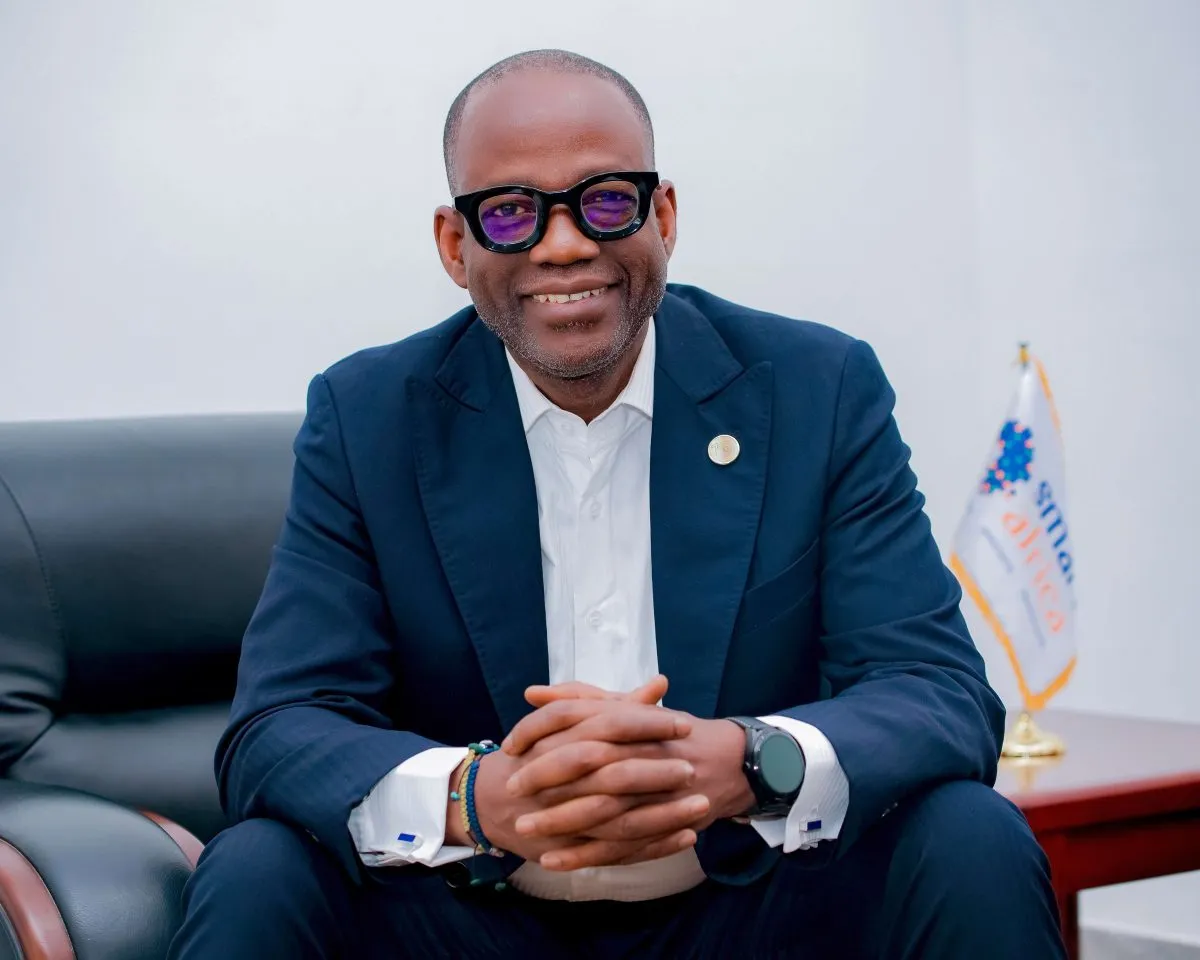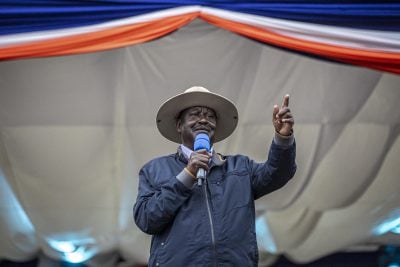Advances in artificial intelligence could potentially be a development game changer for Africa, even though the continent largely remains at the wrong end of the global technology gap.
According to Lacina Koné, director general of Smart Africa, AI will enable the continent to accelerate information delivery, allowing even people who are functionally illiterate to interact with and better access public services. Undoubtedly, he says, this will help African countries to pursue the United Nations Sustainable Development Goals, which countries are expected to achieve by 2030. “When deployed with inclusion, AI will enable people who do not speak French, English, Portuguese, Arabic or Spanish to participate in development,” Koné says.
Experts believe that by making more relevant information available, farmers, for example, can plan better, while health outcomes can also be improved. But it is not a foregone conclusion. A recent white paper produced by the African Union Development Agency – New Partnership for Africa’s Development (AUDA-NEPAD), the African Union’s technical implementation arm, argues that while AI can significantly enhance productivity in sectors such as agriculture, healthcare, and manufacturing, achieving these gains demands robust digital infrastructure, sound policies, and strategic investments in human capital.
Prepared in conjunction with Microsoft Research and Philanthropies, the University of Pretoria, Lelapa AI, and Oxford University, the paper, AI and the Future of Work in Africa, projected that in South Africa productivity improvements from generative AI could contribute approximately 0.5% to GDP growth through automation. It also highlighted the dual nature of AI’s impact on labour markets – offering opportunities for innovation and new jobs while posing challenges like job displacement in routine sectors, thus calling for concerted efforts in re-skilling and up-skilling the workforce.
Koné notes that artificial intelligence rests on digital infrastructure, connectivity in urban and rural areas and data centres, all areas in which the continent has challenges. “In terms of connectivity, only 46% of the population uses the internet,” he points out, clarifying, however, that “this does not mean that only 46% of the population is covered. The coverage rate is one thing and the usage rate is another!” According to him, while network coverage reaches roughly 85%, actual usage lags at about 50%, which he attributes to the affordability of internet access, which remains out of reach for many in Africa.
Studies by Smart Africa, in collaboration with the World Bank, have shown that low penetration rates, the limited availability of smart devices, the scarcity of relevant content and cybersecurity concerns are the four key issues that will determine the future of AI on the continent. Innovation and policy harmonisation will also be critical. “We need legislation for our start-ups to clarify the procedures to follow with regard to the states, to support and encourage them. We shouldn’t also forget training, such as that provided by the Smart Africa Academy,” he adds.
‘Data is the new oil’
As AI becomes more mainstream, data and the ownership of it will become even more critical. “Data is the new oil,” Koné argues, stressing that Africa must retain and control its data. “Our view is that African data must stay in Africa. The battle for the future is the battle for data. The evolution or revolution of AI depends on the quantity or massification of digital data. Africa must harmonise policies for access to sovereignty by having its own data centres because the future of the world will be based on data capitalisation,” he asserts.
Retaining data on the continent, however, means having more data centres: but, as Koné points out, Africa is home to only a fraction of the global capacity. “Of the 8,000 data centres in the world, only 152 are in Africa. This is a real danger. We need to change the way we see and think. If Africa wants to move forward with access to digital sovereignty, it will have to lead us towards digital models that take into account our values, our cultures, our situations and our intra-African realities,” he stresses.
As the continent tries to engage with a digital future, Smart Africa, a pan-African institution with a mandate to accelerate the continent’s growth by expanding access to digital tools, will be an important club in the continental bag. Koné says that the organisation, set up by seven African leaders in 2013, now represents 41 member states, covering 1.2bn people. Its original manifesto, he explains, was “to put information and communication technology at the heart of the continent’s socio-economic development; to promote and build high-bandwidth infrastructure; to rely on this for the transparency of our administrations; to favour the African private sector to revitalise activities; and finally, to promote innovation through our start-ups and young people to capitalise on the continent’s demographic dividends.”
Koné says that he sees harmonising policies across the continent as critical for fostering digital transformation. “The regulatory framework can make or break a country in the ecosystem of the digital economy,” he says, pointing to the disparity between nations like Singapore and those in Africa, which he attributes to the difference in how regulatory frameworks are harmonised across connectivity, governance and data protection. “Africa must be seen as a vast market,” he emphasises, rather than a collection of different states.
Partnerships
Koné explains that Smart Africa pursues its mandate through partnerships with its member states, development partners, civil societies and academic institutions. He is currently working with African countries to define their own digital approaches. For example, Rwanda is focusing on smart cities; Benin on digital identity; Ghana on pan-African electronic payments; and Côte d’Ivoire on cybersecurity.
“We are currently following some 18 master plans at the continental level on the deployment and planning of emerging technology programmes. Our approach is much more pragmatic than the bilateral relationship between donor countries and development partners,” he notes.
Koné outlines the four core themes driving Smart Africa’s work: connectivity, innovation, transformation and acceleration, noting that its projects are structured around these key areas. He cites connectivity projects, such as work with Equatorial Guinea, where it recommended connections with two neighbouring countries.
He mentions the involvement of Côte d’Ivoire with the continental cybersecurity master plan, which has resulted in the creation of the African Network Of Cybersecurity Authorities, along with regulations and harmonisation efforts related to artificial intelligence. Through its Smart Africa Digital Academy, in partnership with the World Bank and other institutions, it is also providing training for policymakers, civil servants, and startups, while it also has a science, technology, engineering and mathematics (STEM) programme.
Harness the power of AI
Smart Africa’s mission, Koné says, is to help harness the power of AI to advance the continent’s development goals, noting that it is potentially a $2.9 trillion market opportunity that must be seized between now and 2030.
“For us, AI is not just a revolution, it is an evolution in the ecosystem that we are already practising, since it is based on pillars in which we have seen a lot of progress. We want to implement all these projects – connectivity, innovation, harmonisation and training. This is our battlefield for the next two years,” he stresses.
Want to continue reading? Subscribe today.
You've read all your free articles for this month! Subscribe now to enjoy full access to our content.
Digital Monthly
£8.00 / month
Receive full unlimited access to our articles, opinions, podcasts and more.
Digital Yearly
£70.00 / year
Our best value offer - save £26 and gain access to all of our digital content for an entire year!

 Sign in with Google
Sign in with Google 



